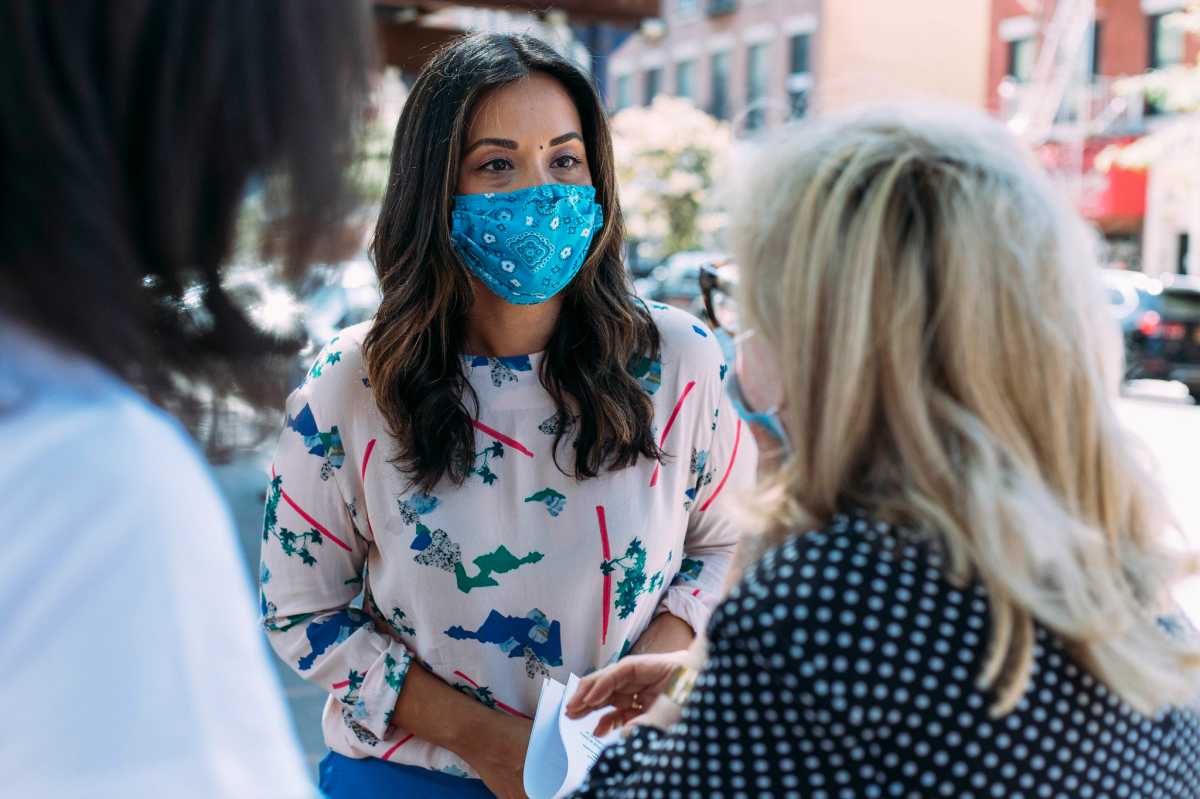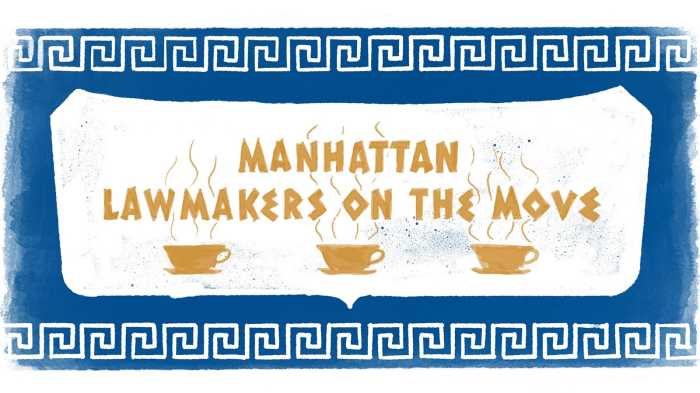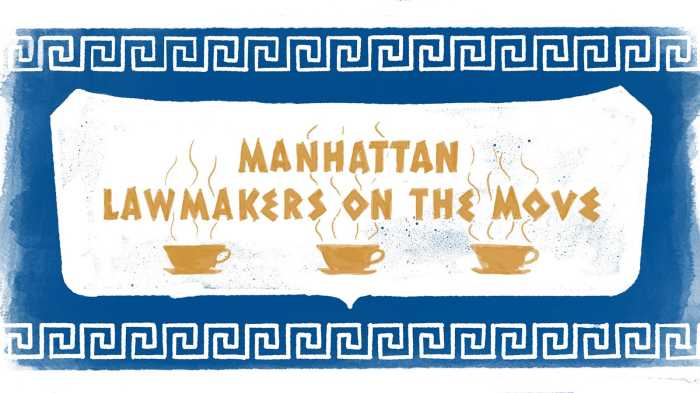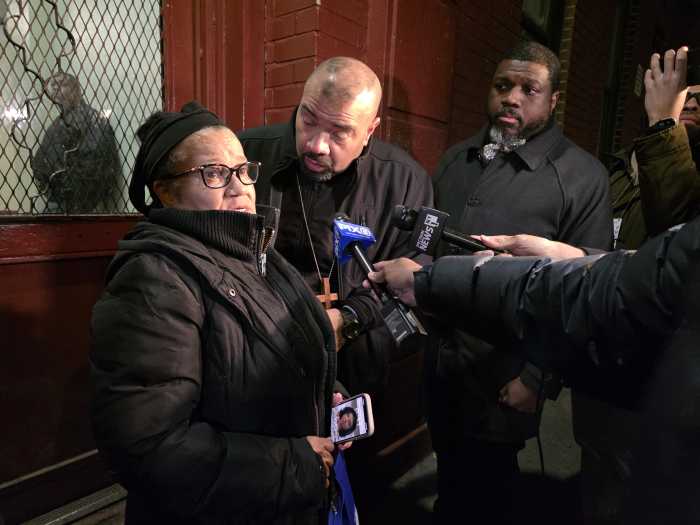What’s it like to run a small business during a pandemic? How do you cope with fewer customers, increased restrictions and the constant threat of commercial eviction? And what resources are available to you in desperate times?
Those are all questions that Councilmember Carlina Rivera (D-East Village, Gramercy Park) strove to answer during last night’s virtual discussion.
At 7:30 p.m. last night, Rivera hosted a discussion on Facebook about small business survival during the COVID-19 era. The discussion featured two special guests: Meghan Joye, a bar owner on the Lower East Side, and Andrew Flamm, director of Pace University’s Small Business Center.
As a councilmember, Rivera has been working to keep small businesses afloat since the pandemic began. Recently, she introduced and passed a bill to suspend personal liability provisions in commercial leases; this meant that businesses directly affected by the lockdowns could not be evicted for failure to pay rent, utilities or taxes. Although the bill expires on Sep. 30, Rivera is currently trying to pass legislation to extend it to next March.
“[The bill] was challenged in court,” said Rivera. “I’ve been sued a few times already, but I think that means I’m doing a good job. Hopefully we can just provide… not just that comfort, but some real inspiration for business owners, knowing that we’re thinking about them.”
Meghan Joye, owner of several bars and restaurants on the Lower East Side, was incredibly grateful for the legislation, noting that the threat of eviction has been “petrifying”.
“Even if you have a Good Guy Guarantee… those are so onerous, what you have to do to enact those,” said Joye. “When your business is failing, the last thing you should be worrying about is that they’re going to take your apartment, or whatever money you have in the bank. I think that was petrifying for all of us business owners.”
Joye was also grateful for the City’s outdoor dining program, noting that it helped her business immensely. However, she added that she’s still serving far fewer customers than she was before the pandemic.
“We’ve been able to get seats out in almost all of our places,” said Joye. “There are some nights when all of our seats fill up and you think, ‘This is great!’ But then you realize, ‘Oh, I’m still only doing 30 to 50 percent of the business I was doing last year.’ You know? But this time is all about treading water and staying alive. Nobody here can possibly make a profit during this time. It’s just a matter of paying your bills and treading water until we get a vaccine.”
Later, Rivera asked her about her experiences regarding federal small business support programs – particularly the Paycheck Protection Program (PPP) and Economic Injury Disaster Loans (EIDL). From what Rivera had heard, the application process for both programs was “very, very hectic”, and it was hard to get answers from government officials and lenders.
“Essentially, many of these [business owners] were closed out of the city loan process, and the state hasn’t provided any relief,” said Rivera. “We’re hoping to go back to Albany to figure something out.”
However, Joye spoke highly of the NYC Department of Small Business Services (SBS), claiming that they were “very helpful” in guiding her through the PPP application process.
During the latter half of the discussion, Andrew Flamm took the floor, explaining what he’s been doing to reach out to individual businesses. In his position, Flamm focuses on capacity building with small business owners, while connecting them to financial resources.
“Our focus is on one-on-one assistance,” said Flamm. “We have professional business advisors; their day job is working with entrepreneurs, many of which are hopefully watching this call today. We conduct our sessions either online, through video chats, by phone, by email… whatever’s most comfortable for you. Our hope is that before too long we’ll be back doing in-person sessions at our lower Manhattan location. But for the time being, it’s all been remote.”
Flamm noted that, while times have been difficult for New York’s business owners, the City is lucky to have an abundance of resources. Specifically, he pointed to the City’s numerous Community Development Financial Institutions (CDFIs), which provide financial assistance to tenants in low-income neighborhoods. Since the pandemic began, Flamm has reported continued success in connecting his clients to those very institutions.
“[CDFIs] offer very favorable loan programs, if your business is in a position to take on debt,” said Flamm. “A lot of places in the country just don’t have those. A couple that come to mind are the Renaissance Economic Development Corporation in Chinatown, the Lower East Side Federal Credit Union. There are others in the City, as well, that are doing really good work.”
Remarkably, he said, there are even options for those who want to start a business in the midst of the COVID-19 era. Although the environment has become more challenging for small business owners, it’s far from inhospitable.
“It’s mostly a matter of what you have available to invest, and whether you have investors who believe in the model,” said Flamm. “Crowdfunding can be a way to tap into your community. But before all that, I would ask whether you have a solid business model and know how you’re going to generate revenue. If there’s a market out there for you, test it.”








